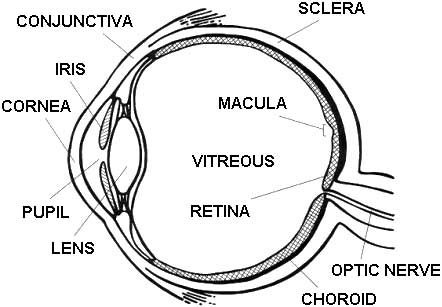What is retinal degeneration?
The retina is the light-sensing layer at the back of the eye – much like a file in a camera.
Some conditions cause a slow and gradual deterioration of the retina.
Other conditions affect only the retina used for central vision.
The type and severity of the clinical symptoms vary according to the specific disorder.
Common symptoms are loss of night vision and side vision in retinitis pigmentosa and loss of central (reading) vision in macular degeneration.
Approximately 1,000 people in NZ are affected with retinitis pigmentosa and about 10,000 people with age-related maculopathy.
Retinal degenerative disorders are a very common cause of blindness.
What is the cause?
Some retinal degenerative conditions such as retinitis pigmentosa are strongly hereditary. A defect in a single gene can give a person a very strong likelihood of developing retinal degeneration.
There are three main types of inheritance pattern for the strongly hereditary retinal degenerations:
- The recessive type:
- No known family history of the eye disease
- Can affect males and females.
- Both parents are carriers
- Estimated that one person in 80 carries a gene for recessive retinal degeneration.
- The dominant type
- Usually appears in successive generations in an affected family.
- A50% chance of having an affected child with each birth
- Usually a less severe form.
- The sex-linked type
- Transmitted by female carriers to their sons.
- Affected males cannot transmit it to their sons, but all of their daughters will be carriers.
- The son of a female carrier has a 50% chance of being affected, while her daughter has a 50% chance of being a carrier


